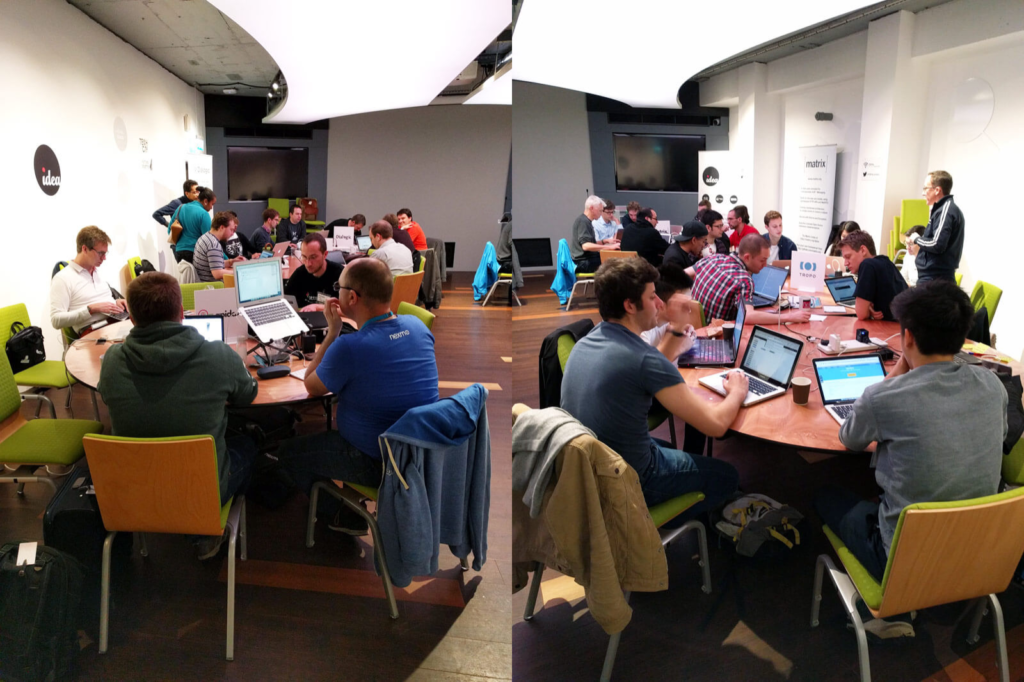The purpose of this CXTech Week 33 2020 newsletter is to highlight, with commentary, some of the news stories in CXTech this week. What is CXTech? The C stands for Connectivity, Communications, Collaboration, Conversation, Customer; X for Experience because that’s what matters; and Tech because the focus is enablers.
You can sign up here to receive the CXTech News and Analysis by email. Please forward this on if you think someone should join the list. And please let me know any CXTech news I should include.
RingCentral’s on a Partner Roll
RingCentral added ALE (Alcatel Lucent Enterprise) to its list of exclusive resale partners. Following on from Avaya and Atos Unify; and let’s not forget their long established carrier deals with AT&T, BT, and Telus. If you’re a large corporate, your future looks like its going to be RingCentral 😉
If this trend continues will we see another monopoly like Facebook, Google and Amazon? No, as there’s competition on all sides. Zoom adding phone systems to its offer. A long list of competitors with well established channels to market, see the CXTech Landscape, and Nextiva note below.
Cisco and Microsoft definitely have a much stronger challenger. But diversity will reign for business phone systems. The RingCentral customer can still call and message other non-RingCentral customers, collaboration is a your platform or mine decision, IP messaging/comms has interoperability with Mio and Matrix, and the contact center similarly relies on PSTN interoperability or integration with the IP comms silo.
RingCentral have the process and pricing structured so it’s a compelling case for the vendors to close the product gap, and still make money. How many of ALE’s 40 million seats they’ll be able to convert over to UCaaS will be interesting. The pricing of a phone system delivered through an ALE partner, versus RingCentral direct, versus one of the 100+ phone system providers out there will also be interesting in the mid-market segment. But as discussed in CXTech Week 30, RingCentral has its positioning and proposition well-mapped across the business communications problem space.
The market is consolidating, principally for large corporate phone system providers. While for mid-market and small business, diversity will reign for a little longer. However, consumerization of business communications will drive consolidation, watch out for Google and Amazon’s moves.
Nextiva Investing ‘Millions’ In Partners
Following on from the above UCaaS consolidation with RingCentral. Nextiva is an example of a company targeting SMB through channels with its new NeXus partner program.
Nextiva does about 50 percent of its business through its more than 4,500 channel partners.
“We‘re putting millions of dollars into the channel right now to support their businesses and growth,” Martorano (Nextiva CRO) said.
With businesses, relationships matter, having someone local they can trust is a significant factor. With consumerization of business communications this will change, but it’s a cultural change, which is generally slow, unless the economics change significantly, which is unlikely. Bottom line, diversity in business communications will reign.
How Infobip Built Continuous Localization Into CPaaS
An under-appreciated CPaaS challenge given the country by country variations in telecoms rules, regulations, and economics is localization. Even some of the big CPaaS providers still struggle on this.
Infobip solved it using a Translation Management System (TMS) with API integration that works in continuous localization setups, has an easy-to-use portal, and includes a solid web-based translation editor.
And a global language service provider (LSP) that would adapt to the chosen TMS, learn about Infobip’s products, and cover necessary geographies. So that internal staff contribute only as reviewers.
I like their approach is continuous localization, avoiding creating roles based on specific locations. Rather a Localization Manager to oversee quality, guide the project managers and Infobip’s in-country reviewers, as well as squaring the corporate and in-country strategies. Check out the article for more explanation and benefits. This issue often gets hidden behind a marketing or product manager, and their workload explodes as the business grows, Infobip’s approach shows a solution.
Dean’s 5G Rant
Its mid-late summer, we’re on the downward slope towards Autumn/Fall and back to school (in whatever form that will be). At least some of your reading should be fun! And Dean’s article provides that.
What continues to surprise and frustrate me is the resilience of the telco ecosystem to ignore the bleeding obvious pointed out by Dean, and by others, props to William Webb as well on 5G.
There are loads of examples such as: Digital Transformation, Service Innovation, and even minor geeky stuff like OneAPI. The telco ecosystem ignores the world, and continue to sing from the oligopoly approved hymn sheet, until the next round of fashionable thinking comes along.
There’s a Navajo proverb, though likely has many other sources, “You can’t wake a person that is pretending to be asleep.” The telco ecosystem has its belief system, and apostates to those beliefs are simply ignored, like most apostates through history. Because its in the telcos best short-term interest to keep the 5G hype going, as what else do they have?
Changing World, Changing Mozilla
Mozilla is laying off 25% of its workforce, 1000 down to 750 employees. With a focus on profitability. Mozilla makes most of its money from companies paying to make their search engine the default in Firefox. This includes deals with Baidu in China, Yandex in Russia, and most notably, Google in the US and most of the rest of the world. The company also makes money from royalties, subscriptions, and advertising, but those search deals represent the “majority” of its revenue.
However, several Firefox teams have been laid off including, Servo (parallel browser taking advantage of Rust), FF Dev Tools, and MDN (Mozilla Developer Network). This calls into question the future of Firefox, which is a little sad as its my preferred WebRTC browser, but Chrome is dominant. Perhaps Red Hat or IBM could acquire Mozilla?
TADHack Location Focus
Review of TADHack London / Bristol / UK over the years.

Review of our biggest and brightest location, TADHack Johannesburg / South Africa.

People, Gossip, and Frivolous Stuff
Vladimir Beloborodov is now Senior Solutions Manager at Orion Innovation. Vladimir has taken part in many TADHacks.
Stefan Ålund is now Principal Product Manager at Spotify. Previously engineering lead of Ericsson’s Contextual Communication Cloud (C3).
Bill Crank (previously Dialogic) is now on the Board of Directors at Codeherent.
Jon Montana is now Sr Product Manager at Vonage. Previously with Dialogic.
Bogdan Ghita is now Associate Dean (International) at University of Plymouth.
Andrew Hamlett is now Operations Manager at sipsynergy. Previously with Telavox, winner of the SIMCON 2020 Award: Ahead of their Time. They are leading the way with their ambition to wipe out desk phones and handsets. This is backed by a fantastic platform and a company with great core ethics.
You can sign up here to receive the CXTech News and Analysis by email.